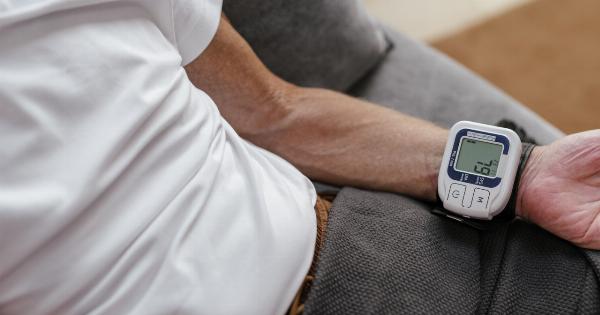High blood pressure, also known as hypertension, is a common health condition among adults. According to the American Heart Association, approximately 45% of adults in the United States have high blood pressure.
The scary part is that most of them don’t even know they have it. Many people with high blood pressure may not experience any symptoms until it’s too late, which is why it’s often referred to as the “silent killer.”.
What is High Blood Pressure?
High blood pressure occurs when the force of blood flow through your blood vessels is consistently too high. Over time, this condition can lead to serious health problems, including heart disease, stroke, and kidney failure.
Blood pressure is measured in two numbers: systolic and diastolic. Systolic pressure is the force of blood flow when your heart beats, while diastolic pressure is the force of blood flow between heartbeats. A normal blood pressure reading is considered to be less than 120/80 mm Hg.
Why Don’t Most People Know They Have High Blood Pressure?
The most common reason why people with high blood pressure don’t know they have it is because they don’t experience any noticeable symptoms.
It’s possible for someone to have high blood pressure for years without ever feeling sick or experiencing any symptoms. This is why it’s important to have your blood pressure checked regularly, especially if you have a family history of high blood pressure or other risk factors.
Who is at Risk for High Blood Pressure?
Several factors can increase your risk of developing high blood pressure, including:.
- Obesity
- Inactivity
- Smoking
- High salt intake
- Stress
- Family history of high blood pressure
- Age (risk increases with age)
- Race (African Americans are more likely to develop high blood pressure)
How Can You Prevent High Blood Pressure?
There are several lifestyle changes you can make to help prevent high blood pressure:.
- Eat a healthy diet that’s low in sodium and high in fruits and vegetables.
- Exercise regularly to maintain a healthy weight and improve your cardiovascular health.
- Quit smoking.
- Drink alcohol in moderation or not at all.
- Manage stress through relaxation techniques, such as meditation or yoga.
How is High Blood Pressure Diagnosed?
The only way to determine if you have high blood pressure is to have your blood pressure checked regularly by a healthcare professional. This can be done at your doctor’s office or at home using a home blood pressure monitor.
If your blood pressure is consistently high, your doctor may recommend additional tests to determine the cause of your high blood pressure and develop a treatment plan.
What are the Treatment Options for High Blood Pressure?
There are several treatment options available for high blood pressure, including:.
- Lifestyle changes, such as diet and exercise
- Medications to lower blood pressure
- Monitoring and management of underlying health conditions, such as diabetes or sleep apnea
What Can Happen if High Blood Pressure is Left Untreated?
High blood pressure is a serious condition that can lead to a range of health problems if left untreated. Some of the most common complications of high blood pressure include:.
- Heart attack
- Stroke
- Kidney damage
- Eye damage
- Cognitive impairment and dementia
The Bottom Line
High blood pressure is a common condition that impacts millions of adults in the United States. Unfortunately, most people with high blood pressure don’t even know they have it.
This is why it’s so important to have your blood pressure checked regularly, especially if you have a family history of high blood pressure or other risk factors. With early detection and proper management, high blood pressure can be managed effectively and the risk of complications minimized.





























